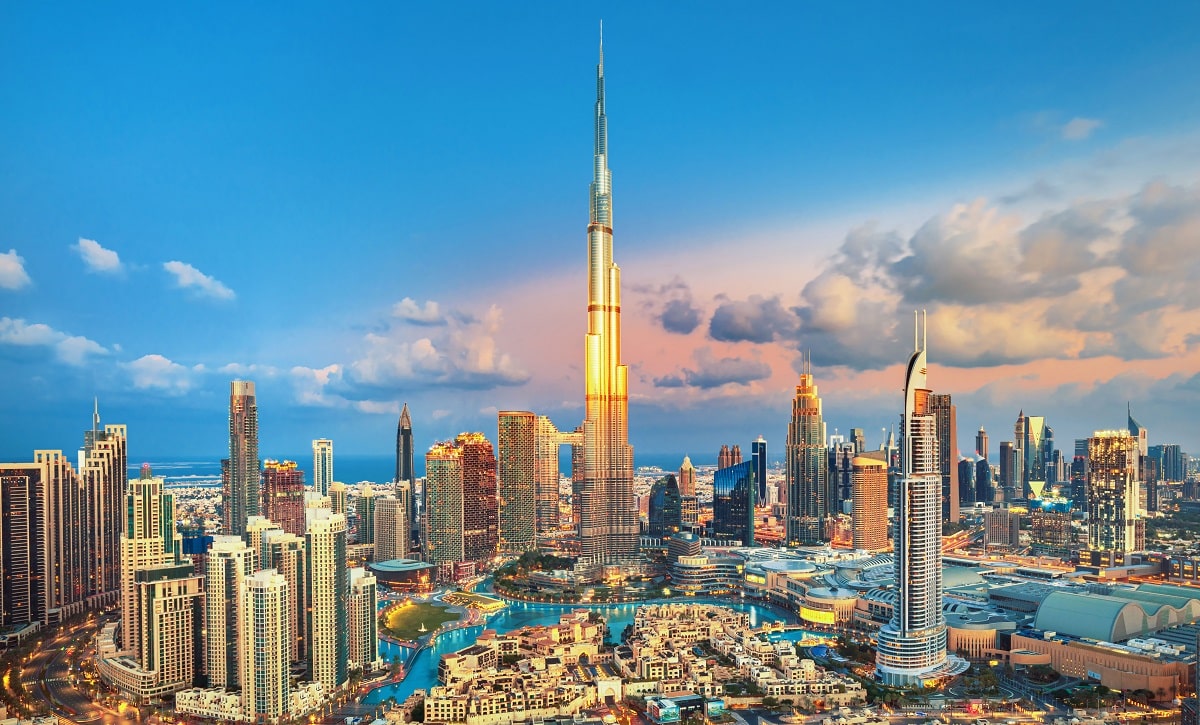Introduction to Work Visas in Dubai
Dubai is a leading global destination for professionals seeking career growth, thanks to its thriving economy, tax-free income, and diverse work environment. To legally work and reside in the city, foreign nationals must obtain a Work Visa in Dubai, which is usually sponsored by employers. This visa not only authorizes employment but also grants residency status for the duration of the job contract. With strict immigration laws in place, a Work Visa for Dubai is essential for ensuring compliance and securing a smooth entry into the UAE’s dynamic job market.
Brief Overview of Dubai as a Work Destination
Dubai has emerged as one of the most attractive work destinations in the world, offering a unique combination of economic opportunity, modern infrastructure, and a high standard of living. Known for its rapid development and business-friendly environment, the city hosts a wide range of industries including finance, real estate, technology, tourism, healthcare, and logistics. Dubai’s strategic location as a gateway between East and West, along with its tax-free salaries and cosmopolitan lifestyle, make it particularly appealing to skilled professionals and entrepreneurs. With a multicultural population and a strong focus on innovation and growth, Dubai continues to be a top choice for individuals looking to build successful international careers.
Importance of Obtaining a Valid Work Visa
Obtaining a valid work visa is a critical requirement for anyone planning to work legally in the UAE, and this is especially true when it comes to Work Visas in Dubai. These visas serve as official authorization from the UAE government, allowing foreign nationals to live and work in the country under the sponsorship of an employer or relevant authority.
Without a valid work visa, individuals are not only at risk of legal penalties, including fines or deportation, but also lack access to essential services such as healthcare, housing contracts, and the Emirates ID. Furthermore, a valid work visa ensures that workers are protected under UAE labor laws, including rights related to working hours, wages, and workplace conditions. For anyone seeking employment in this global city, securing a Work Visa in Dubai is the foundational step toward a stable and legally compliant career.
Types of Work Visas in Dubai

There are several types of work visas in Dubai, each designed to accommodate different categories of professionals and employment situations. The most common is the standard employment visa, which is issued to individuals who have secured a job with a company registered in the UAE; this visa is sponsored by the employer and typically valid for two years. For freelancers and self-employed professionals, the freelance visa offers flexibility and is often sponsored through a free zone authority.
Dubai also offers the Green Visa, targeting skilled workers, freelancers, and investors, allowing them to sponsor themselves without the need for a traditional employer. Additionally, the Golden Visa is a long-term residency visa aimed at investors, entrepreneurs, and highly skilled professionals, offering up to 10 years of residency. Each of these work visa types serves different professional needs and opens various pathways to live and work legally in Dubai.
Employment Visa
The Employment Visa is the most common type of work visa in Dubai, issued to foreign nationals who have secured a job with a company registered in the UAE. This visa is employer-sponsored, meaning the hiring company is responsible for initiating and processing the application through the Ministry of Human Resources and Emiratisation (MOHRE) and the General Directorate of Residency and Foreigners Affairs (GDRFA). The visa typically includes a two-year validity and grants both legal employment and residency status. Holders of an employment visa are also eligible to apply for an Emirates ID and access essential services like banking and healthcare.
Freelance Visa
The Freelance Visa in Dubai is designed for individuals who wish to work independently without being tied to a single employer. This visa is ideal for professionals in sectors such as media, technology, education, and design. It is typically issued through free zones such as Dubai Media City, Dubai Internet City, or Dubai Knowledge Park. Applicants must provide proof of their expertise, relevant credentials, and, in some cases, a portfolio of their work. A freelance permit and residency visa are granted upon approval, allowing professionals to offer services to multiple clients while legally residing in Dubai.
Green Visa (for Skilled Workers)
The Green Visa is a relatively new category introduced by the UAE government to attract highly skilled workers, freelancers, and investors. Unlike traditional work visas, the Green Visa allows individuals to sponsor themselves without the need for employer backing. It is aimed at professionals with high qualifications, specialized skills, or advanced degrees in key fields such as engineering, technology, and healthcare. This visa is usually valid for five years and offers additional benefits such as the ability to sponsor family members and greater job flexibility, promoting long-term residency and professional growth in Dubai.
Golden Visa (for Investors and Professionals)
The Golden Visa is a long-term residency program introduced to attract investors, entrepreneurs, researchers, and highly skilled professionals. Valid for 5 or 10 years, the Golden Visa does not require an employer sponsor and offers enhanced stability and benefits, including the ability to sponsor family members and domestic workers. Eligibility for the Golden Visa typically includes significant investment in UAE property or business, or recognition for exceptional talent in fields such as science, medicine, engineering, or the arts. This visa reflects Dubai’s strategic vision to retain top talent and encourage long-term contribution to the UAE’s development.
Eligibility Criteria for a Dubai Work Visa
To obtain a Dubai work visa, applicants must meet specific eligibility criteria set by the UAE government. First and foremost, the individual must have a valid job offer from a UAE-registered employer who will act as the sponsor. The applicant should possess the necessary educational qualifications, professional experience, or technical skills relevant to the job role. A valid passport with at least six months’ validity is required, along with passing a mandatory medical fitness test conducted at authorized health centers in Dubai. Additionally, candidates must have a clean criminal record and may be asked to provide attested educational certificates depending on the job classification. Meeting these criteria is essential to ensure legal entry, residence, and employment in Dubai.
Educational and Professional Qualifications
Educational and professional qualifications are key components of the eligibility criteria for obtaining a Dubai work visa. The UAE government requires that applicants possess the appropriate academic background or vocational training relevant to the job they are being hired for. Depending on the role, especially in specialized fields such as healthcare, engineering, or education, candidates may need to submit attested copies of their degrees or certificates from their home country and have them verified by the UAE embassy. These qualifications help ensure that workers meet industry standards and are capable of performing their job responsibilities effectively.
Health and Background Checks
Health and background checks are mandatory steps in the Dubai work visa application process. All applicants must undergo a medical examination at an approved health center in Dubai, which typically includes blood tests and a chest X-ray to screen for infectious diseases like HIV, tuberculosis, and hepatitis. Those who fail the medical test are usually denied a visa. In addition to the medical test, a clean criminal background is required. While not all applicants must submit a police clearance certificate, some job categories may require it, especially those in education, healthcare, and security-related roles. These checks are in place to maintain public safety and ensure a healthy workforce.
Employer Sponsorship
Employer sponsorship is a fundamental requirement for most types of work visas in Dubai. The employer—whether a company, government entity, or free zone authority—is responsible for initiating and handling the visa application process on behalf of the employee. This includes obtaining the initial work permit, submitting required documentation to immigration and labor authorities, and covering visa-related fees. The sponsor also assumes legal responsibility for the employee while they are in the UAE. Without a sponsor, individuals cannot obtain a standard employment visa, although other options like the Green or freelance visas offer more independent pathways.
Steps to Apply for a Work Visa in Dubai
Applying for a work visa in Dubai involves several key steps, typically initiated by the employer. The process begins once a candidate secures a job offer from a company based in Dubai. The employer then applies for a work permit (also known as a labor card) from the Ministry of Human Resources and Emiratisation (MOHRE). Once the permit is approved, the employee receives an entry permit visa, allowing them to enter the UAE legally.
Upon arrival, the employee must undergo a medical fitness test at a government-approved health center and apply for an Emirates ID by submitting biometric data. Next, the employee’s residency visa is stamped in their passport by the General Directorate of Residency and Foreigners Affairs (GDRFA), officially granting them legal residence and work rights in Dubai. The final step involves the issuance of a labor contract signed by both the employer and employee, registering the individual as a legal worker under UAE labor law. This process ensures the worker is fully documented and legally authorized to live and work in Dubai.
Securing a Job Offer
The first and most crucial step in applying for a work visa in Dubai is securing a legitimate job offer from a UAE-based employer. This offer serves as the foundation for the visa application process and must include details such as job title, salary, contract duration, and employment terms. Without a confirmed job offer, it is impossible to proceed with the work visa application, as most visas require employer sponsorship. Candidates typically find job opportunities through online portals, recruitment agencies, or direct company applications, and the offer letter formalizes the employer’s commitment to hire and sponsor the applicant.
Employer’s Role in Visa Sponsorship
Once a job offer is secured, the employer takes on the essential role of visa sponsorship. This means the employer officially applies for the work permit and visa on behalf of the employee through the Ministry of Human Resources and Emiratisation (MOHRE) and immigration authorities. The employer handles much of the paperwork, pays the visa fees, and ensures all legal requirements are met. Sponsorship also involves assuming responsibility for the employee’s legal status in the UAE during the visa’s validity. Without employer sponsorship, the standard employment visa process cannot proceed, making the employer’s role critical.
Submitting Documents and Medical Tests
After the employer initiates the visa process, the applicant must submit a range of required documents, which usually include a valid passport, passport-sized photographs, the job offer letter, educational certificates, and any other relevant paperwork. Additionally, the applicant must undergo a mandatory medical fitness test at authorized health centers in Dubai. This test screens for communicable diseases such as tuberculosis and HIV. Passing the medical examination is mandatory before the residency visa can be issued. Submission of accurate documents and successful completion of medical tests are vital to avoid delays or rejection of the visa application.
Emirates ID Application Process
As part of the work visa process, applicants must apply for an Emirates ID, a mandatory identification card issued by the Federal Authority for Identity and Citizenship. After arriving in Dubai, the applicant visits a designated Emirates ID registration center to submit biometric data, including fingerprints and a photograph. The Emirates ID serves as an official identity document required for various activities such as opening bank accounts, signing rental contracts, and accessing government services. The ID is usually processed alongside the residency visa, and receiving it marks an important step in legally establishing one’s residency and work status in Dubai.
General Eligibility Requirements
To be eligible for a work visa in Dubai, applicants must typically meet several baseline requirements set by the UAE government. First and foremost, the individual must have a valid job offer from a UAE-registered employer who will act as their sponsor. Applicants should generally be between 18 and 60 years old, though exceptions may apply for highly skilled professionals.
Educational qualifications relevant to the job role—usually a diploma or degree—are often required, especially for positions in sectors like healthcare, engineering, and education. Additionally, the applicant must pass a mandatory medical fitness test conducted in the UAE and provide a police clearance certificate to prove good conduct. Meeting these requirements is essential for obtaining and maintaining a legal employment status in Dubai.
Age and Education Criteria
To qualify for a Dubai work visa, applicants must typically be at least 18 years old. While there is no strict upper age limit, most employers prefer candidates under the age of 60 due to labor law regulations and health insurance costs. In terms of education, the required qualifications depend on the nature of the job. Skilled positions often demand at least a diploma or university degree relevant to the field—such as engineering, medicine, or IT—while unskilled or semi-skilled roles may only require basic education. However, the higher the qualification, the easier it is to access better opportunities and longer-term visa options.
Job Offer and Employer Sponsorship
A valid job offer from a UAE-based company is a fundamental requirement for obtaining a work visa in Dubai. The employer acts as the visa sponsor and is responsible for initiating the application process with the Ministry of Human Resources and Emiratisation (MOHRE). This includes securing a work permit, paying relevant fees, and ensuring that the employment contract aligns with UAE labor laws. Without a sponsoring employer, individuals cannot legally obtain a standard employment visa—unless they apply under special categories like the freelance or green visa schemes.
Medical Fitness and Background Checks
After receiving initial approval and entering the UAE, applicants must undergo a mandatory medical fitness test at a government-approved health center. This includes a blood test and a chest X-ray, primarily to screen for communicable diseases such as HIV and tuberculosis. Failure to pass this test results in visa rejection and repatriation. Additionally, a police clearance certificate from the applicant’s home country (or country of residence) is often required to confirm that the individual has no serious criminal record. These checks are designed to maintain public safety and health standards in the UAE.
Processing Time and Costs
The processing time for a Dubai work visa can vary depending on the employer’s efficiency, the applicant’s documentation, and the workload of immigration authorities. On average, the entire process—from initial job offer to final visa stamping—takes between 2 to 4 weeks. This includes obtaining the initial work permit, completing medical testing, receiving the Emirates ID, and having the visa stamped in the passport.
As for costs, employers typically bear the majority of visa-related expenses, especially for company-sponsored visas. These costs can include application fees, medical tests, Emirates ID registration, and visa stamping, which together may range from AED 3,000 to AED 7,000. However, in some industries or for certain roles, candidates may be asked to cover parts of the cost themselves—though this practice is discouraged under UAE labor laws. Additional expenses may arise if dependents (spouse or children) are being sponsored or if premium processing is requested. It’s important for applicants to confirm upfront what the employer will cover to avoid any surprises.
Dubai’s Future as a Global Employment Hub
Dubai continues to solidify its reputation as a global employment hub, thanks to its strategic location, world-class infrastructure, and business-friendly environment. With initiatives like the UAE Vision 2030 and the introduction of flexible visa categories such as the Green and Golden Visas, the city is actively attracting skilled professionals, entrepreneurs, and investors from around the world. Industries like technology, finance, healthcare, and construction are booming, offering vast career opportunities to international talent. As Dubai positions itself at the forefront of innovation and economic diversification, the demand for foreign workers is expected to grow steadily in the coming years.
Why Preparing Your Visa Properly Makes All the Difference
A well-prepared work visa application is not just a formality—it’s the foundation of a successful career transition to Dubai. Incomplete or inaccurate submissions can lead to delays, rejections, or legal complications. Understanding the requirements, gathering the correct documents, and coordinating closely with your employer ensures a smoother process and helps you avoid unnecessary stress. Moreover, staying informed about the latest visa rules and policy updates can empower you to make better decisions about job opportunities and long-term residency options. In short, careful preparation sets the stage for a confident and hassle-free move to one of the world’s most dynamic job markets.
FAQs About Dubai Work Visas
Can I switch from a tourist visa to a work visa in Dubai?
Yes, if you receive a job offer while in the UAE on a tourist visa, your employer can apply to change your visa status without requiring you to exit the country. However, this process must be handled through official immigration channels and can involve additional fees.
What happens if I lose my job while on a work visa?
If you lose your job, you are generally granted a grace period of 30 days to find new employment, transfer your visa to a new sponsor, or leave the UAE. The exact grace period may vary depending on your visa type and employment contract.
Can I sponsor my family once I have a work visa in Dubai?
Yes, most work visa holders can sponsor their spouse and children, provided they meet the minimum salary requirement (usually AED 4,000 to AED 5,000 per month). You’ll also need to provide proof of housing and valid health insurance for dependents.










